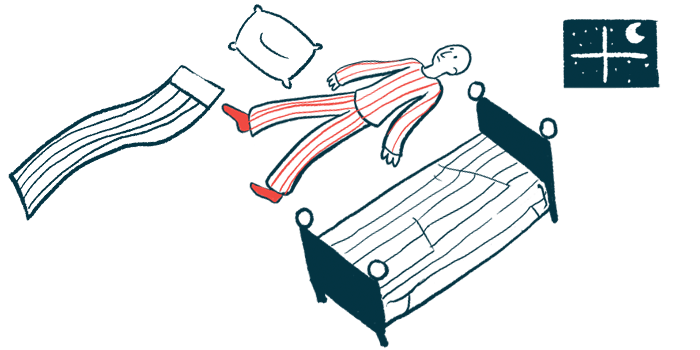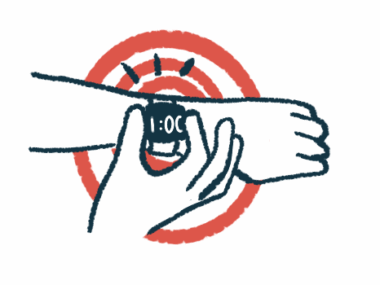Sleep problems are common among ALS patients: Meta-analysis
All the studies used polysomnography to compare people with, without ALS
Written by |

People with amyotrophic lateral sclerosis (ALS) spend time less asleep and wake up often during the night, a new analysis shows.
Because good sleep is critical for quality of life, the findings emphasize the importance of testing sleep quality in ALS so appropriate treatments can be given if needed, the researchers said in “Sleep in amyotrophic lateral sclerosis: A systematic review and meta-analysis of polysomnographic findings,” which was published in Sleep Medicine.
Trouble with sleep is commonly reported with ALS and some studies suggest patients usually have abnormalities on polysomnography (PSG), which is the gold standard for objectively measuring sleep quality and quantity. It’s unclear exactly what sorts of changes in PSG are most common in ALS, however, leading scientists in China and the U.S. to conduct a meta-analysis to better characterize ALS-related PSG changes. Meta-analysis is a type of study where researchers pool data from multiple previously published studies then analyze them collectively. By including data from many studies, meta-analyses provide greater statistical power toward detecting meaningful differences.
“To our knowledge, this is the first meta-analysis exploring the PSG changes in ALS patients compared with healthy controls,” the researchers wrote about the analysis, which included data from eight studies, covering about 300 people with ALS and a similar number of people without the disease. Most of the studies (7 of 8) were published after 2012.
Analyzing sleep problems in ALS
While all the studies used PSG to compare people with and without ALS, there were some important differences in methods used in them. Some didn’t include patients on medications known to affect sleep, but others did, and different studies used different standardized scores to measure sleep quality.
In an initial analysis, the researchers found many PSG parameters significantly were altered in ALS. For example, on average, patients spent significantly less time asleep and had less time in slow-wave stages that feature more restful, deeper sleep.
“The TST [total sleep time] of ALS patients is nearly 80 [minutes] less compared with controls in our meta-analysis,” the scientists wrote.
Patients also tended to have worse scores related to breathing and taking up oxygen during sleep. They also spent more time awake after going to bed and had poorer sleep effectiveness. These differences generally remained statistically significant when sensitivity analyses were performed to account for study-to-study variations in age, sex, and body mass index (a ratio of weight to height).
The scientists speculated that neurological changes in ALS, as well as disease symptoms such as issues with breathing, might explain some changes. More research is needed to investigate the underlying mechanisms, they said.
People with ALS also tended to spend less time in REM (rapid eye movement) sleep, which is when dreaming occurs, initial analyses suggested. This difference was no longer significant after statistical adjustments, however, meaning it’s mathematically plausible it could be explained by random chance.
Because REM sleep is critical for maintaining brain health, the researchers said larger studies should investigate if there’s a meaningful difference in REM sleep time with ALS.
In further sensitivity analyses, the researchers analyzed only studies that didn’t exclude participants taking medications known to affect sleep. Some of the ALS-related differences, such as more time spent awake and worse sleep efficacy, were more pronounced than in the original analysis with all eight studies. Differences also were more dramatic when only studies that used the same scoring system to assess sleep quality were analyzed.
“In the sensitivity analysis, we found that not excluding patients taking medications impacting sleep and different PSG scoring rules could impact differences in PSG findings between ALS patients and controls,” the scientists wrote, adding the findings imply that “taking sleep medications masks the true impact of ALS.” This will be an important consideration for future research, they said.






